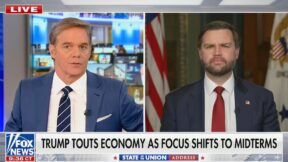John Oliver Champions Reparations for Black Americans: ‘A Wound That We are Actively Choosing Not to Heal’
John Oliver returned from his summer hiatus on Sunday to take on a contentious topic in the United States: reparations.
“We’re not actually talking about reparations for slavery here. We should, but that is a different conversation,” he said on Sunday’s Last Week Tonight. “We’re talking about housing discrimination.”
The host went on to highlight the history of homeownership in the U.S., noting that while the birth of certain policies, such as the concept of a modern home mortgage, were necessary following the Great Depression, long-lasting effects continue to complicate Black Americans’ ability to qualify for loans.
“Millions bought homes that never otherwise could have bought homes. It was a great idea, which is why it is so tragic that directly baked into that plan was the intentional exclusion of Black people,” Oliver said, later addressing that the legacy of discriminatory real estate practices still impacts home sales to Black Americans.
The host pointed out that some present-day communities continue to have laws that forbid people of color from purchasing property in the area.
“When you take all of this together – the redlining, the block-busting, the steering, and not least, the federal government’s involvement, it all becomes clear the myth of white Americans prosperity, powered by ingenuity and self-reliance, leaves a lot out,” Oliver said — launching into a case for housing reparations.
“The only really strange thing about paying reparations to Black people is that we haven’t done it yet,” he said. “When you deprive somebody of something, you make it right by paying what you owe.”
Oliver conceded that determining how much should be returned to Black Americans will likely “get complicated,” yet argued that recognizing that something is owed following the treatment of the community throughout the nation’s history is “pretty simple.”
“This is a wound that we are actively choosing not to heal,” Oliver concluded. “And it is hurting real people every day.”
Watch above, via YouTube.
New: The Mediaite One-Sheet "Newsletter of Newsletters"
Your daily summary and analysis of what the many, many media newsletters are saying and reporting. Subscribe now!






Comments
↓ Scroll down for comments ↓